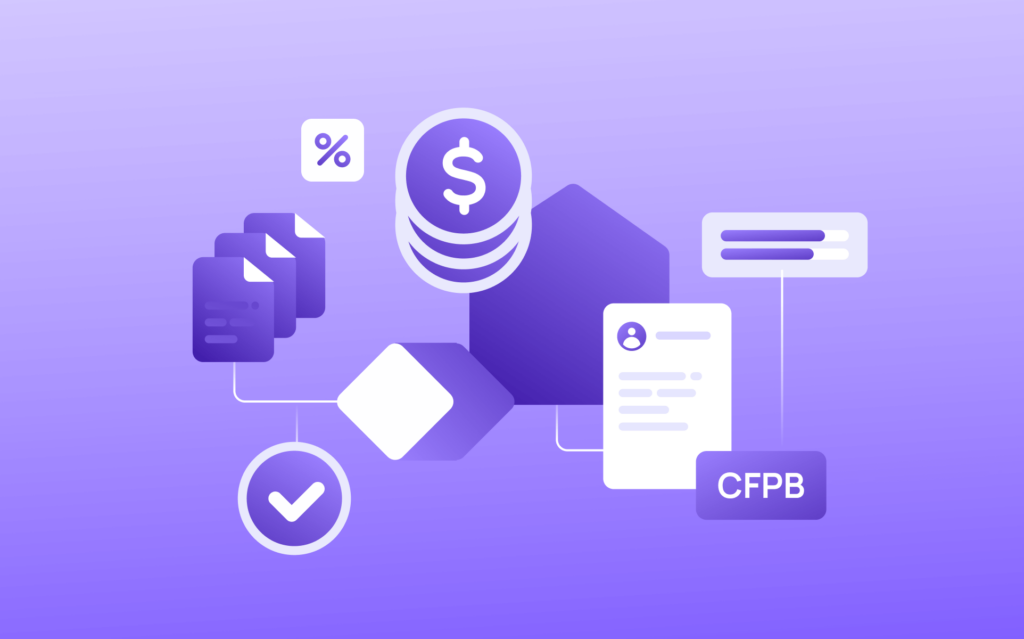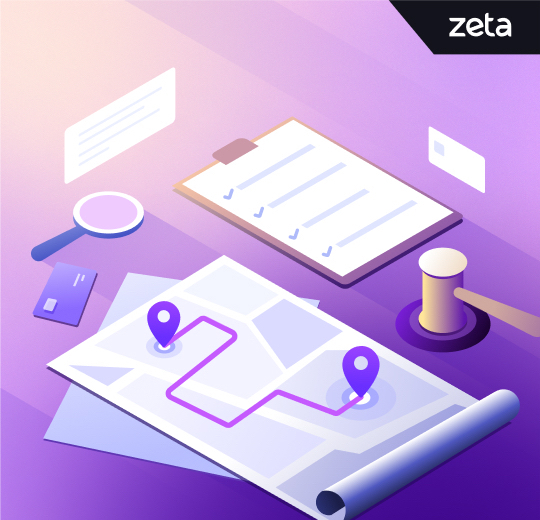Section 1071: What Small Biz Lenders Need to Know

What is CFPB’s 1071 Final Rule of Dodd-Frank Act
In March 2023, the Consumer Financial Protection Bureau (CFPB) released its final rule implementing Section 1071 of the Dodd-Frank Act to encourage accountability and transparency within small business lending. The rule will require lenders to collect and report information on all small business credit applications they receive.
How Small Business Lenders Can Comply with the Rule
The rule will place significant new responsibilities on issuers in the coming year. Lenders must collect and report a wide range of information on small business lending.
Data Collection:
Lenders must gather information on the racial, ethnic, and gender composition of small business loan recipients, as well as geographic location, lending decisions, and credit pricing.
Reporting:
Under the new rule, Financial Institutions must report 81 data points to the CFPB by June 1 of the year following the calendar year in which the data was collected.
Records:
Financial Institutions must keep copies of small business lending application registers and other evidence of compliance for a minimum of three years. Some flexibility is being included to aid lenders. For example, self-identification as a woman-owned, minority-owned, or LGBTQI+ owned business means lenders will not need to determine applicants’ demographics. Small businesses are not required to provide this demographic information, but lenders may not discourage applicants from providing it. The rule further allows individual lenders to work with third parties to collect and report data in ways that align with their business models.

Who does the 1071 Final Rule apply to
This applies to all lenders, including conventional banks, credit unions, and non-banks. This thorough data on credit applications will be compiled into a publicly available database, which will help address future economic development needs.
Compared to the original 2021 proposal, the rule now applies to banks and lenders that originate at least 100 loans annually, and the definition of small businesses now includes firms with annual gross revenues of less than $5 million. The final rule also covers a variety of credit products from all types of lenders, including closed-end loans, lines of credit, business credit cards, online credit products, and merchant cash advances from banks, credit unions, and other lenders. Banks, savings associations, credit unions, and non-depository financial institutions are all now required to gather and report data.
Timing:
Though the final rule goes into effect 90 days after it is published in the Federal Register, the data collection and reporting requirements start in March 2024. One big difference between the final rule and the proposed rule is that it will now be put into effect in stages. To figure out when an institution must be in compliance, you need to know how many covered originations it made in 2022 and 2023. For instance, if a financial institution originated at least 2,500 covered originations in both 2022 and 2023, it must start collecting data and otherwise comply with the final rule by October 1, 2024.
The CFPB also intends to issue a supplementary proposal that, if finalized, would provide additional implementation time for small lenders that have demonstrated high levels of success in serving their local communities. Overall, the rule aims to streamline the lending process, creating a more efficient and effective system that benefits both banks and their small business clients.
Where to get more guidance for the Rule
The CFPB has provided a sample data collection form in the new rule that lenders can use to collect information from applicants.
More information on the rule and requirements can be found here.
How can Zeta Tachyon Enable Section 1071 Compliance
In the face of new data collection, reporting, and storage requirements under the Section 1071 final rule, small business lenders are compelled to swiftly adopt new practices and adjust their technology platforms. Zeta Tachyon is designed for flexibility and data extensibility, including the capability to have an unlimited number of custom attributes, tags, and attachments to input and store any number of additional fields for a customer, their accounts, and specific transactions. Thus providing issuers the ability to comply with Section 1071 as well as any future additional data collection requirements for compliance or business purposes quickly and focus their efforts on growth and efficiency. To find out more about how Zeta Tachyon helps issuers lower regulatory overhead and response time, connect with us today.



